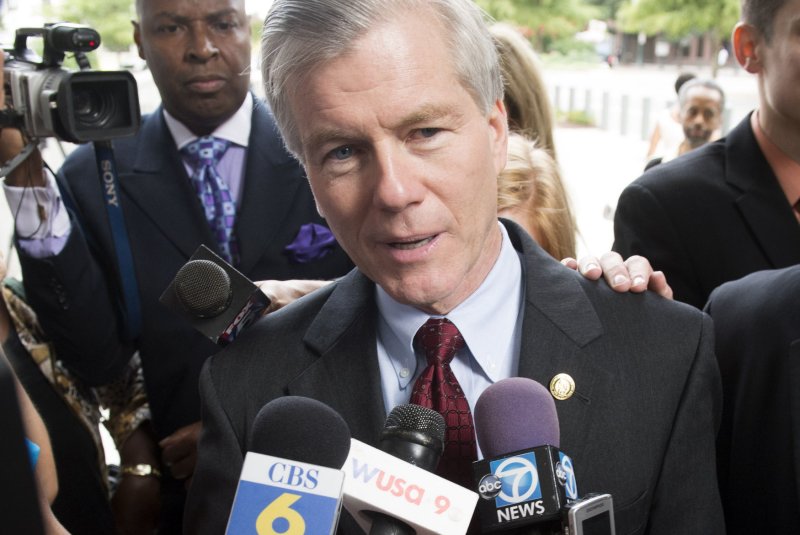1 of 4 | Former Virginia Governor Robert McDonnell arrives for his corruption trial at the U.S. District Court, August 22, 2014 in Richmond, Virginia. McDonnell and his wife Maureen are charged with fourteen different counts relating to their acceptance of more than $135,000 in gifts, loans, trips and other items from businessman Jonnie Williams Sr., in exchange for promoting his company. UPI/Kevin Dietsch |
License Photo
BERLIN, Dec. 3 (UPI) -- A new study on global government corruption shows the Americas and China have made little progress addressing internal ethics, while North Korea and Somalia stand out as the most corrupt governments in the world.
Germany-based organization Transparency International rated each national government on a scale of zero-100, zero being the most corrupt and 100 being the least.
"Countries at the bottom need to adopt radical anti-corruption measures in favor of their people," explain the study's authors. Conversely, "Countries at the top of the index should make sure they don't export corrupt practices to underdeveloped countries."
For the second year in a row, Denmark had the least corrupt government, due to its "strong rule of law, support for civil society and clear rules governing the behavior of those in public positions" as well as "plans to create a public register including beneficial ownership information of all companies incorporated in Denmark.
Denmark, however, is somewhat of an outlier in a region rampant with high profile corruption scandals.
"This year has been marked by numerous scandals in the heart of 'old Europe': in France, Spain and Italy they included a former president, a current regional president and members of the royal family, not to mention dozens of politicians and influential business people. EU citizens also protested against corruption this year in Spain, Romania, Bulgaria, Hungary, Czech Republic and Slovakia ... The way business and other vested interests use political connections to influence public decision-making is at best opaque and often secret. In a forthcoming Transparency International report on lobbying in 19 countries in the European Union, no country comes even close to having ideal safeguards in place to promote open and ethical lobbying."
Despite public anti-corruption campaigns, the Americas still struggle with honest government, although not as much as most of the rest of the world. Standing in the way of progress is politicians' pattern of "performing some specific anti-corruption reforms to show that they are doing something against corruption, but not advancing on all key issues.
"This has led to an increase in the number of countries that have adopted access to information laws, improved their public procurement systems or joined international initiatives such as the Open Government Partnership. All good steps, however, big corruption schemes that involve individuals at the highest level of power and lack of punishment of the corrupt continue to prevail in the Americas."
China, which has very publicly taken steps against corruption in the last year, was measured as slightly more corrupt than the previous year's study due to the proliferation of essentially the exact same political climate the study asserts is plaguing the Americas, but worse.
"In 2014 we have heard a lot about government efforts to prosecute corruption, and corruption scandals in China ... However, China shows a downward trend in the index (with a score of 36) in comparison to last year (40), posing a hugely challenging question: how effective is a top-down approach when you don't have transparency, accountable government and free media and civil society? The recent prosecutions in China are largely seen as efforts to clamp down on political opponents of the regime as opposed to genuine anti-corruption commitments."
The Chinese government has condemned the report, and called for Transparency International to "examine the objectiveness and neutrality" of its report.
"The index score and ranking of China in the 2014 Corruption Perceptions Index is seriously inconsistent with the achievements made by China in the anti-corruption campaign," Foreign Ministry spokeswoman Hua Chunying said in a statement.
"It is well known to the world the Chinese government is resolute in cracking down on corruption, and the achievements made by us in the corruption campaign are well known to the world."















